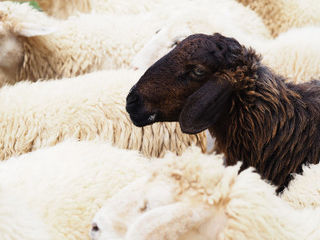Relationships
Is Your Estranged Adult Child the Black Sheep of the Family?
Parents may be able to strengthen bonds weakened by differences.
Posted December 9, 2019 Reviewed by Davia Sills

Many families have at least one black sheep, someone who marches to the beat of a different drummer than the rest of the clan.
It might be the sole liberal in a family of conservatives. Or an athlete descended from a line of scientists. Or just someone who seems, let’s say, eccentric compared to the rest of the group.
Without thinking too hard, can you name a black sheep in your own family?
Being the family black sheep is not an easy path. It’s painful to be the “one of these things” that “just doesn’t belong here” in the Sesame Street song.
Social scientists have long recognized that being the one who’s different in any social group is an unpleasant experience for most people. In a family where everyone “belongs” by virtue of membership, the experience can be even more intensely negative.
Some black sheep suffer to the point of becoming estranged from the family. Feeling misunderstood, judged, or otherwise not accepted sends them into the arms of others—friends, partners, teammates, etc.—with whom they feel more of a bond.
The Black Sheep Experience
If your estranged adult child identifies as the family black sheep, it’s important to support other relationships in which they find solace. Sometimes it will be an equally eccentric friend or relative. Whoever it is, that person will be a boon to your child.
It may be tempting to discourage relatives from supporting your child’s estrangement from you if that’s what’s happened. But if you recognize that your black sheep likely feels a lack of acceptance from the family in general, you’ll understand how helpful it is for them to have someone they can talk to.
Lack of acceptance and even judgment can be conveyed by parents and other family members unintentionally. Commenting on or questioning the black sheep’s opinions or choices, a practice that other family members might see as harmless, can be perceived as a judgment or lack of acceptance by the black sheep.
Your estranged black sheep adult child may engage in on-again-off-again contact with you. That’s because she’s ambivalent. She may want very much to be a part of the family. But contact sometimes doesn’t feel good to her. She might feel judged or “othered,” leading to another retreat from family.
Bring Them Into the Fold
We all want to feel like we belong somewhere. Those who don’t find that with family often seek it elsewhere.
To nurture your relationship with your black sheep adult child, actively bring him into the fold. Make a point of expressing approval and affection whenever possible. Include him in activities. Spend quality time with him and encourage other family members to do so as well.
Look for opportunities to celebrate the ways in which he’s different from you and other family members. His particular gifts and strengths may be hidden behind qualities the family doesn’t explicitly value. But that doesn’t mean they aren’t there.
Lastly, consider whether your child might appreciate your expressing some concern about this topic. How would she respond if you asked her whether she feels marginalized by you or other family members?
What would happen if you let her know how important she is and asked what you could do to help her feel safe and comfortable as a valued member of the family?
Everyone is different, so use your judgment when deciding how to address the issue with your child.
References
Hall, E. D. (2017). The process of family member marginalization: Turning points experienced by “black sheep.” Personal Relationships, 24(3), 491–512. doi: 10.1111/pere.12196


